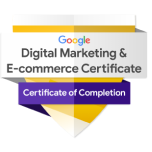Neuromarketing: Understanding Consumer Behavior Through Brain Science
In today’s competitive landscape, understanding what makes consumers tick is more important than ever. Enter neuromarketing — a groundbreaking field that leverages brain science to uncover the subconscious drivers behind buying decisions. For U.S. marketers and business owners, neuromarketing offers a data-driven way to sharpen campaigns, enhance customer engagement, and ultimately drive more sales.

What Is Neuromarketing?
Neuromarketing is a fusion of neuroscience, psychology, and marketing. By studying how the brain responds to marketing stimuli—such as advertisements, product packaging, or even website layouts—marketers gain valuable insights into what truly influences consumers.
Using tools like EEG (electroencephalography), fMRI (functional magnetic resonance imaging), and eye-tracking technology, researchers measure brain activity, attention span, emotional engagement, and decision-making patterns.
Why Neuromarketing Matters in the U.S. Market
The U.S. is one of the most saturated and competitive consumer markets in the world. Traditional marketing strategies often fall short because they rely on what consumers say, rather than what they feel. Neuromarketing digs deeper, tapping into subconscious preferences that drive over 90% of purchasing decisions.
Key Benefits for U.S. Businesses:
Improved Ad Performance: Create ads that trigger emotional and memory-related responses.
Enhanced Product Design: Understand what visual elements make products more appealing.
Optimized User Experience: Design websites that reduce cognitive load and increase conversions.
Better ROI: Use data-backed insights to reduce guesswork and boost marketing efficiency.
Real-World Examples of Neuromarketing
Coca-Cola vs. Pepsi: A famous fMRI study showed that branding significantly influenced brain activity—people preferred Coke only when they knew it was Coke.
Google: The tech giant uses eye-tracking studies to refine ad placement and website design.
Frito-Lay: Changed their packaging to matte bags with less emphasis on “guilt-inducing” words after neuromarketing research revealed emotional triggers in female consumers.
Neuromarketing Tools and Techniques
| Tool | Purpose |
|---|---|
| EEG | Measures electrical activity to assess attention and engagement |
| fMRI | Maps brain activity in response to stimuli |
| Eye-tracking | Analyzes visual attention and focus |
| Facial coding | Detects microexpressions to gauge emotion |
| Biometrics | Measures heart rate and skin response for stress and excitement |
Is Neuromarketing Ethical?
While the idea of “reading consumer minds” might sound intrusive, ethical neuromarketing is about enhancing user experience, not manipulating behavior. Transparent use of neuromarketing aligns with consumer protection laws and fosters trust.
How to Get Started with Neuromarketing
If you’re a marketer, entrepreneur, or business owner in the U.S., here’s how to begin integrating neuromarketing:
Partner with a specialized agency for access to tools and expertise.
Run A/B tests informed by emotional and cognitive data.
Invest in UX research that includes eye-tracking or heat maps.
Train your team in basic neuropsychology principles.

The Future of Marketing is Neurological
As AI, big data, and neuroscience continue to evolve, neuromarketing will play an increasingly vital role in shaping consumer experiences. For businesses in the U.S., adopting neuromarketing isn’t just an advantage—it’s quickly becoming a necessity.
Final Thoughts: Market Smarter, Deeper, and More Human in 2025
The future of marketing is rooted in science—neuromarketing is reshaping how U.S. brands understand, engage, and influence consumers. By decoding the brain’s responses, businesses can create more meaningful, emotionally resonant experiences that drive real results.
To stay ahead in 2025, it’s time to move beyond assumptions and start marketing with precision—powered by neuroscience.
🧠 Ready to unlock what your customers are really thinking?
💬 What neuromarketing technique are you most curious to explore?
📈 Want expert help applying brain science to your marketing strategy?






